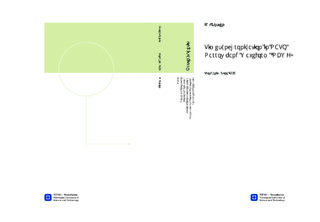Timesynchronization in NATO Narrowband Waveform (NBWF)
Master thesis
Permanent lenke
http://hdl.handle.net/11250/262882Utgivelsesdato
2013Metadata
Vis full innførselSamlinger
Sammendrag
A common notion of time is essential to avoid collisions in distributed radio networks using TDMA. Local clocks with limited accuracy are normally used to control time in each individual node. These clocks require regular synchronization to prevent the local time of these clocks from diverging. Synchronization of these clocks is controlled by a synchronization algorithm that estimates the correct time based on the information exchanged between nodes.This thesis present a survey of synchronization algorithms that can be used by NATO Narrowband Wave Form (NBWF). NBWF requires that synchronization must be performed without the use of dedicated synchronization messages. It is possible to achieve this by using the correct reception of messages inside certain TDMA slots. Reception of these messages enables the receiving node to estimate the local time of the sender without transmission of an actual timestamp. This information can be used by a synchronization algorithm in the receiving node to estimate the correct local time.The survey of potential synchronization algorithms shows that there are several potential candidates for NBWF. A hybrid algorithm, divided into several layer, fulfills most of the NBWF requirements, and it is the most promising candidate. The actual synchronization of nodes is performed in the lowest layer by Discrete Network Synchronization (DNS) algorithm. Simulations with the DNS algorithm show that this algorithm might not be the optimal choice for NBWF networks. This thesis recommends that a modified version of the hybrid algorithm, utilizing the CS-MNS algorithm in the lowest layer, should be considered for further work with NBWF networks.
